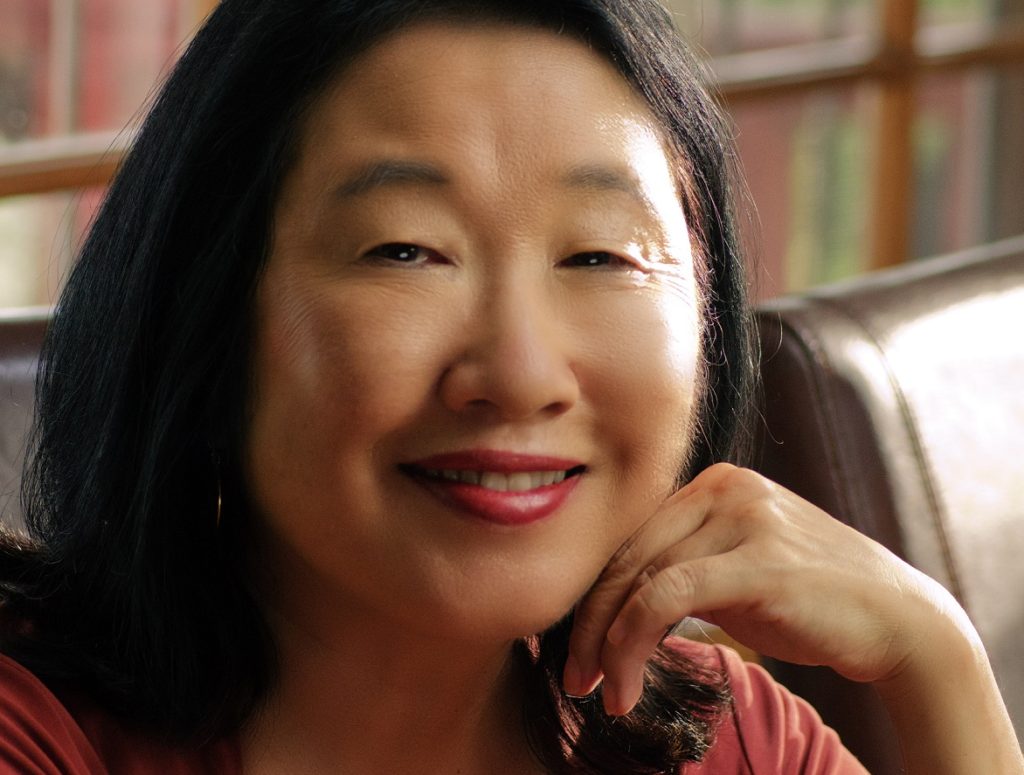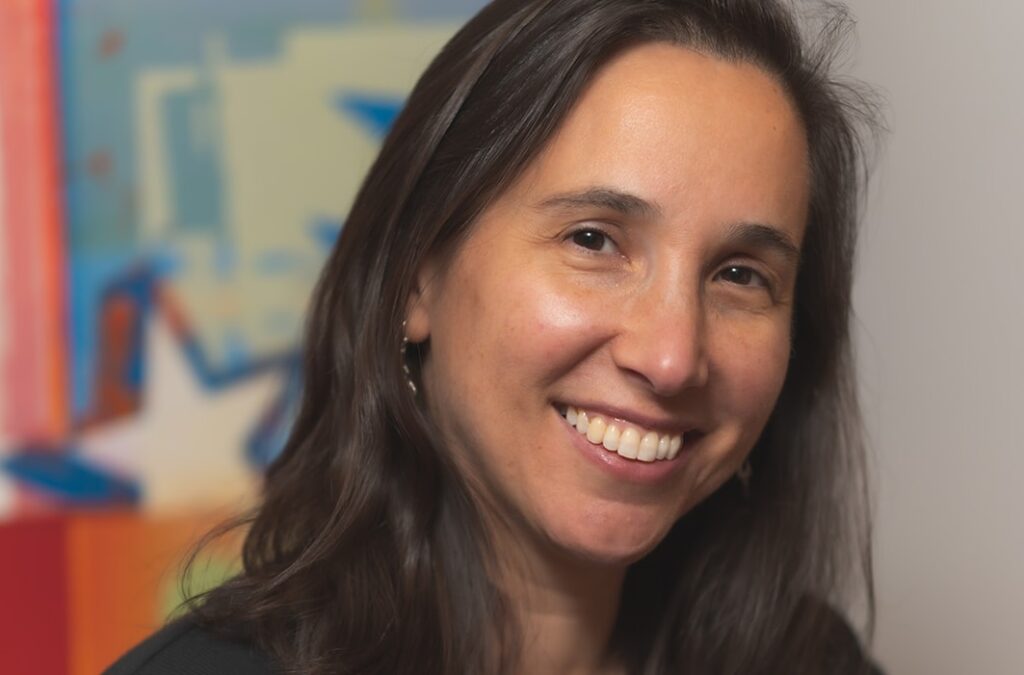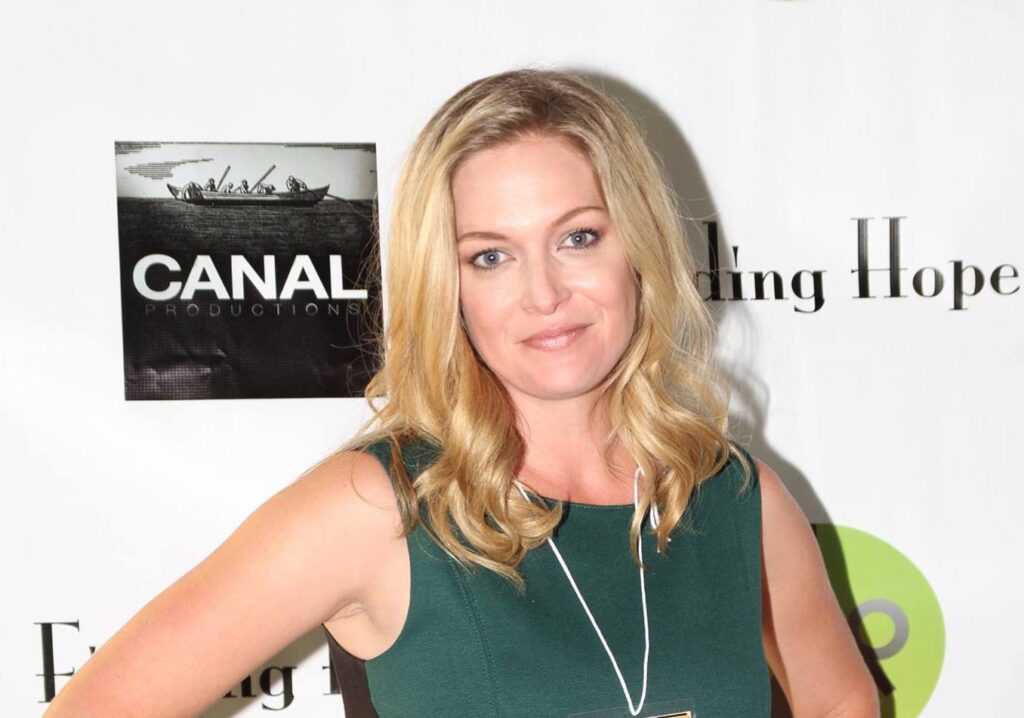Guest Post by Renee Tajima-Peña
I am a recovering angry Asian girl and showrunner of “Asian Americans,” a docuseries about the epic and unexpected history of the country’s fastest growing population. We are debuting the show in the midst of an epidemic of hate towards Asians that was first ignited by President Trump’s characterization of COVID-19 as the “Chinese virus.” Telling our own story today matters more than ever.
This history is personal for me. I grew up during the 1960s and ’70s — a time when diversity meant blondes, brunettes, and redheads. When I looked in the mirror of American culture there was a blank screen, and invisibility means a kind of existential death. That’s a tough reality for a little girl.
I was a real life Angry Little Asian Girl, the character created by actor-cartoonist Lela Lee. Underneath her rice bowl-style haircut, she is perpetually pissed off, flipping the bird at the world that we, fellow raging Asian girls and women, found ourselves living in.
During that time the few familiar faces we did see reflected on screen were likely Vietnamese civilians who were engulfed in a calamitous war. It was the fourth U.S. military conflict fought in Asia. During World War II, my U.S. citizen mother had been forced from her Los Angeles home and into an incarceration camp for Japanese Americans. Hers was a history erased in American memory.
Fast forward to the 1980s. Fresh out of college, I met other angry young Asian Americans who wanted to fill that void of visibility. We carried picket signs in one hand, cameras in the other.
My first film was “Who Killed Vincent Chin?” a documentary about a murder in Detroit in 1982, set in the midst of the auto recession. Japanese imports, and by extension Japanese people, were blamed for the crisis much like the “Chinese virus” scapegoating of today.
On the night of his bachelor party, Chin was killed by two white autoworkers. They pleaded guilty to manslaughter and were sentenced to probation and a fine. They never served a day in jail.
The case ignited a nationwide campaign for justice led by two angry Asian American women, Chin’s mother, Lily, and Helen Zia, an autoworker-journalist who went on to become the editor of Ms. Magazine. Due to the success of that campaign, for the first time, Asian Americans were considered a protected class under federal civil rights law. The Vincent Chin case also helped to expand hate crime protection to include perceived race, gender, sexuality, disability, and religion.
In one segment of “Asian Americans” we revisit the Chin story through a new lens, that of Hmong American activist Mee Moua. Growing up in Appleton, Wisconsin, at the time Chin was killed, Moua was targeted by locals who resented the arrival of Hmong refugees. Because of the activism and publicity surrounding the Chin case, she was able to look into the cultural mirror and see women like Lily Chin and Helen Zia standing for justice. Moua would become a national civil rights leader in her own right, and the first Hmong elected to statewide office.
Among the stories we tell in “Asian Americans” are bad-ass women whose lives span 150 years of American history. Chinese immigrant Mary Tape started her life in San Francisco during the late 1800s working in a brothel. But she then created a prosperous life with her husband, Joseph. When their daughter was denied entry to the local school, Mary led the charge in a successful lawsuit demanding that Chinese children have an equal right to an education.
Anna May Wong in silent movies, and a century later Margaret Cho on television, pushed the boundaries of race and gender on screen. A generation before Mee Moua, Patsy Mink was the first woman of color elected to Congress in 1964. A champion for civil rights, she co-authored Title IX which is now named after her. And in 2001, a Korean-Brazilian pianist named Tereza Lee inspired the DREAM Act. She continues to fight for immigrant rights today.
In creating the series, we wanted to smash the conventional perceptions of Asian Americans that yo-yo between the model minority and perpetual foreigner. We chose stories of people who were a force and presence during turning points in U.S. history and culture, and many were women. They were faces I wish I had seen in the mirror of the screen when I was a young, angry little Asian girl.
There was one snippet of footage that we found, of Mink speaking at the 1960 Democratic National Convention as she convinced delegates to stay firm on the civil rights plank, that struck a particular nerve. It was before my time, but I remembered that my grandfather had always said he wanted me to be another Patsy Mink. Perhaps he had seen the news story, and for Grandpa, who had worked as a cane cutter and janitor, that face envisioned a possible future.
Today the landscape of Asian American visibility has been transformed and is populated by a new generation — including “The Farewell’s” Lulu Wang and “Fresh Off the Boat’s” Nahnatchka Khan — who are running the show. We’re still flipping the bird, but now we are anything but invisible.
A five-part series, “Asian Americans” premieres May 11 and 12 at 8:00 p.m. on PBS (check local listings). For more information visit the project’s website.
Renee Tajima-Peña, the series producer of “Asian Americans,” is an Oscar-nominated documentary filmmaker whose work has premiered at Cannes, Sundance, and Toronto. She teaches documentary at UCLA where she is a professor of Asian American Studies.







